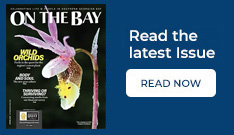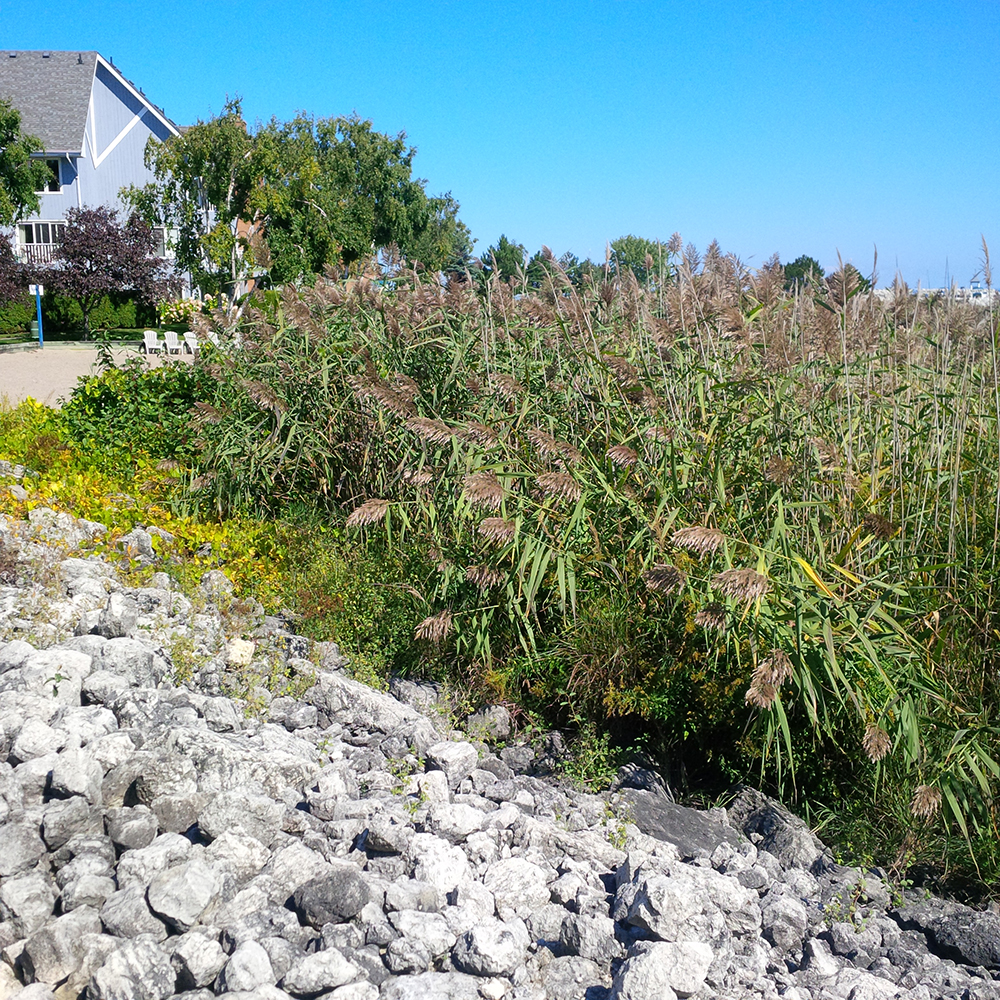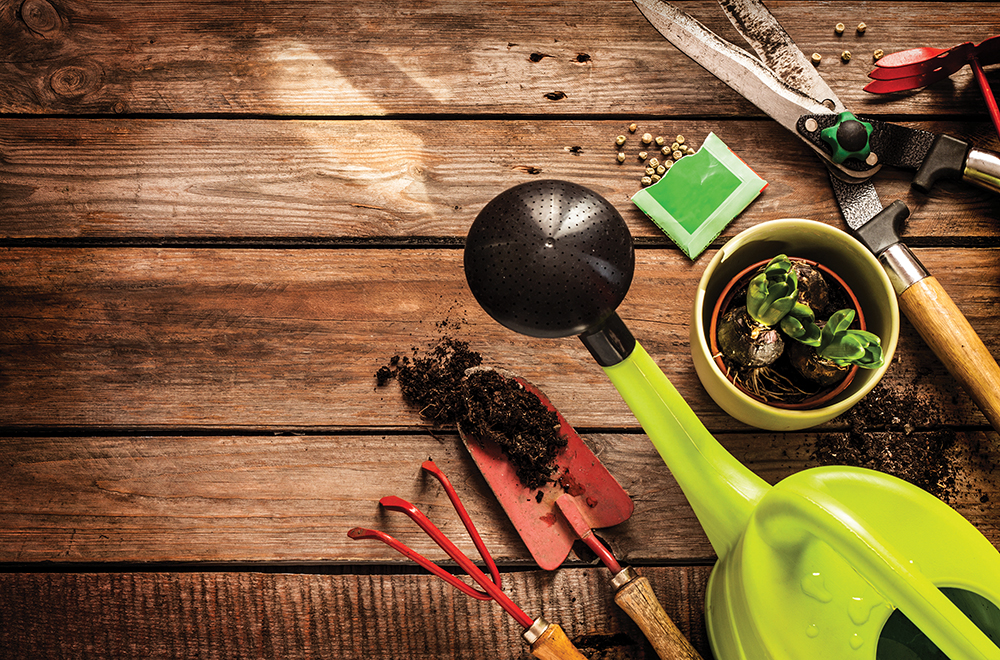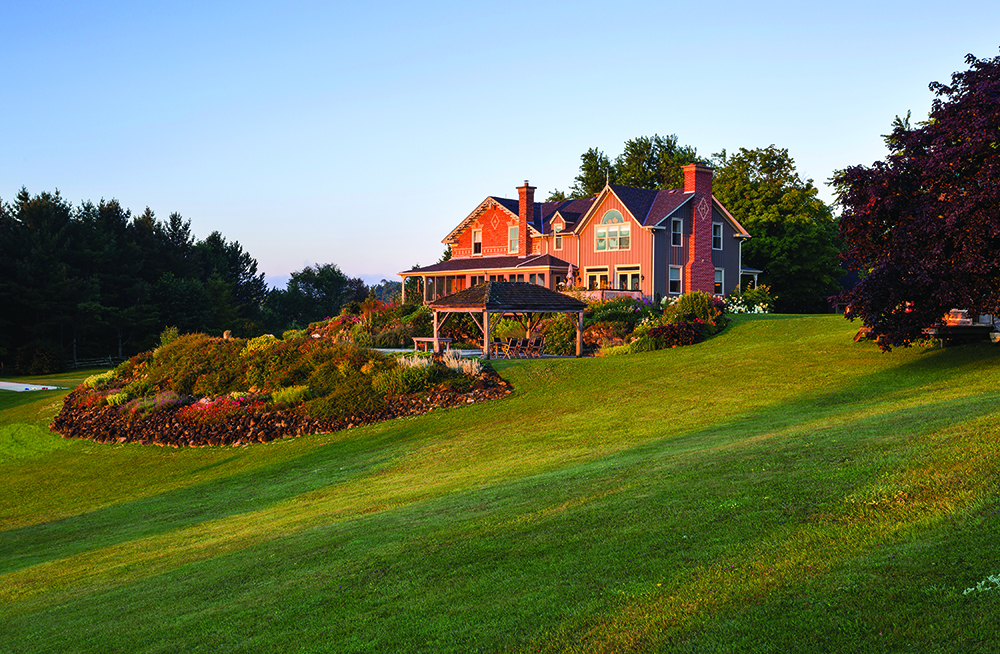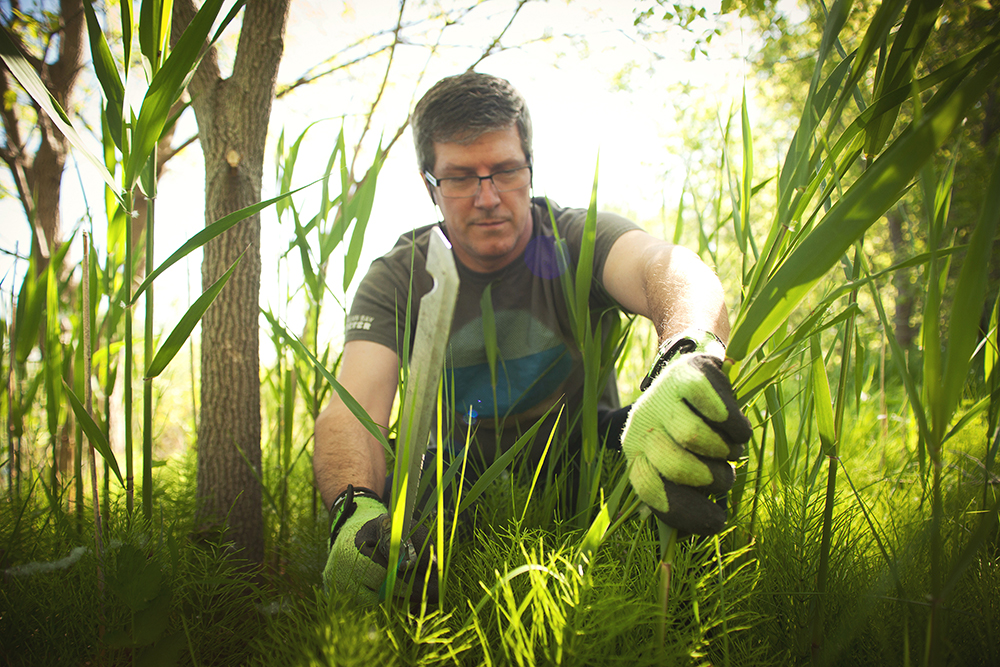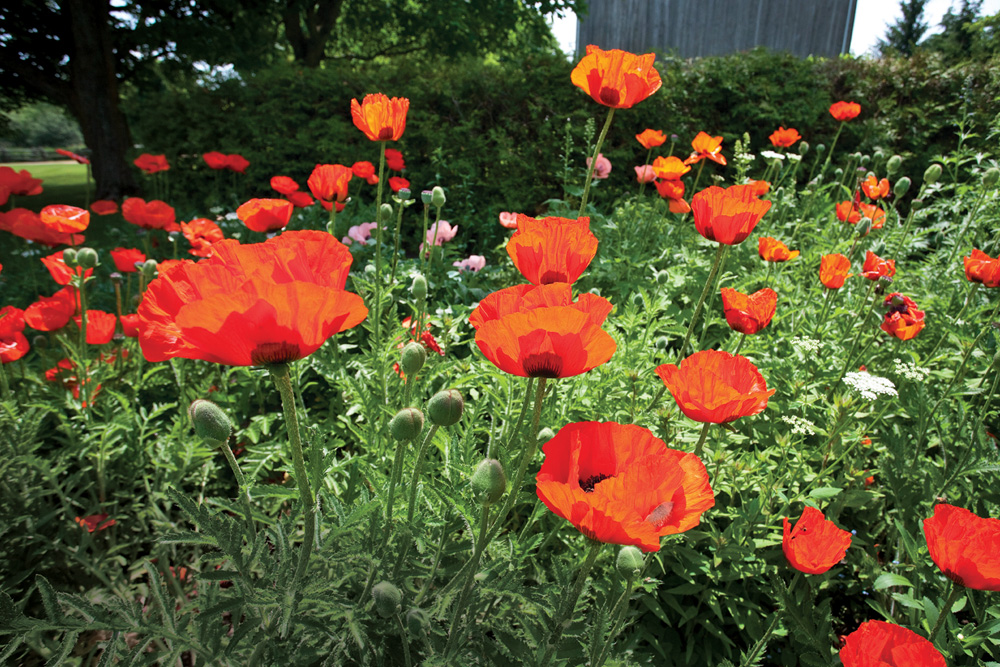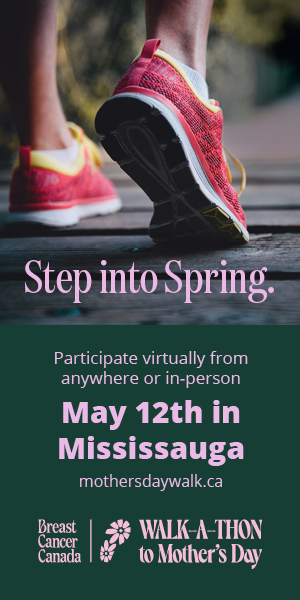Winter is a time to think outside the planter box.
by Tim Shuff
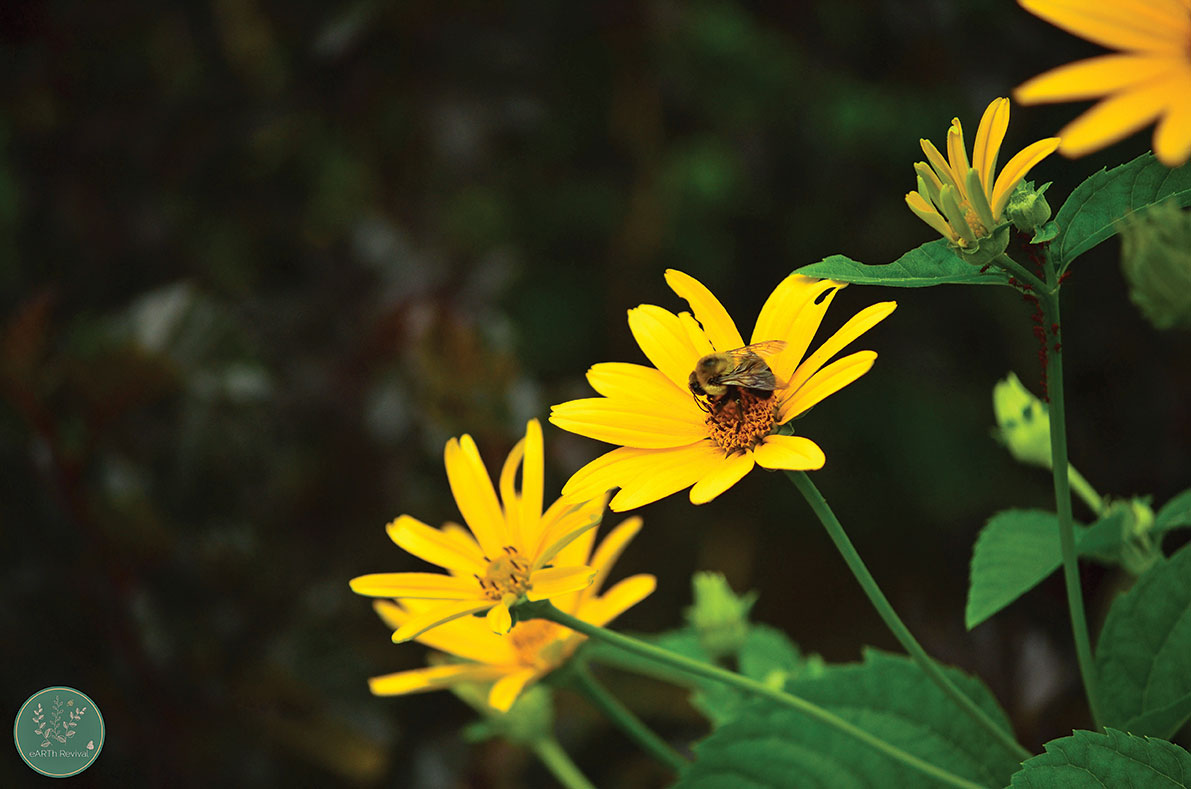
Curling up with plant books or seed catalogues to plan for spring gardening has always been a salve for winter blues. But amidst news of extreme weather events and extinctions, these garden aspirations might be more salient as a cure for what ails us environmentally.
“How do you want your property to interact with the world around you?” asks Carolyn Davies, an insect researcher and director of Pollinate Collingwood, which has helped plant 30 pollinator gardens around Collingwood in the past two years. Davies and Pollinate Collingwood join a trend of local experts and entrepreneurs working to convince us that re-wilding our garden — swapping ecologically inert grass for wildflowers, or simple acts like leaving a “messy spot” of brush in our yard as insect habitat — can make an existential difference at this critical juncture for planetary health.
“You can provide more flowers for pollinators, limit the amount of pesticides flowing into our waterways, and provide nuts and berries for squirrels and birds,” says Davies. “Consider how you want to impact the world and go for it!”
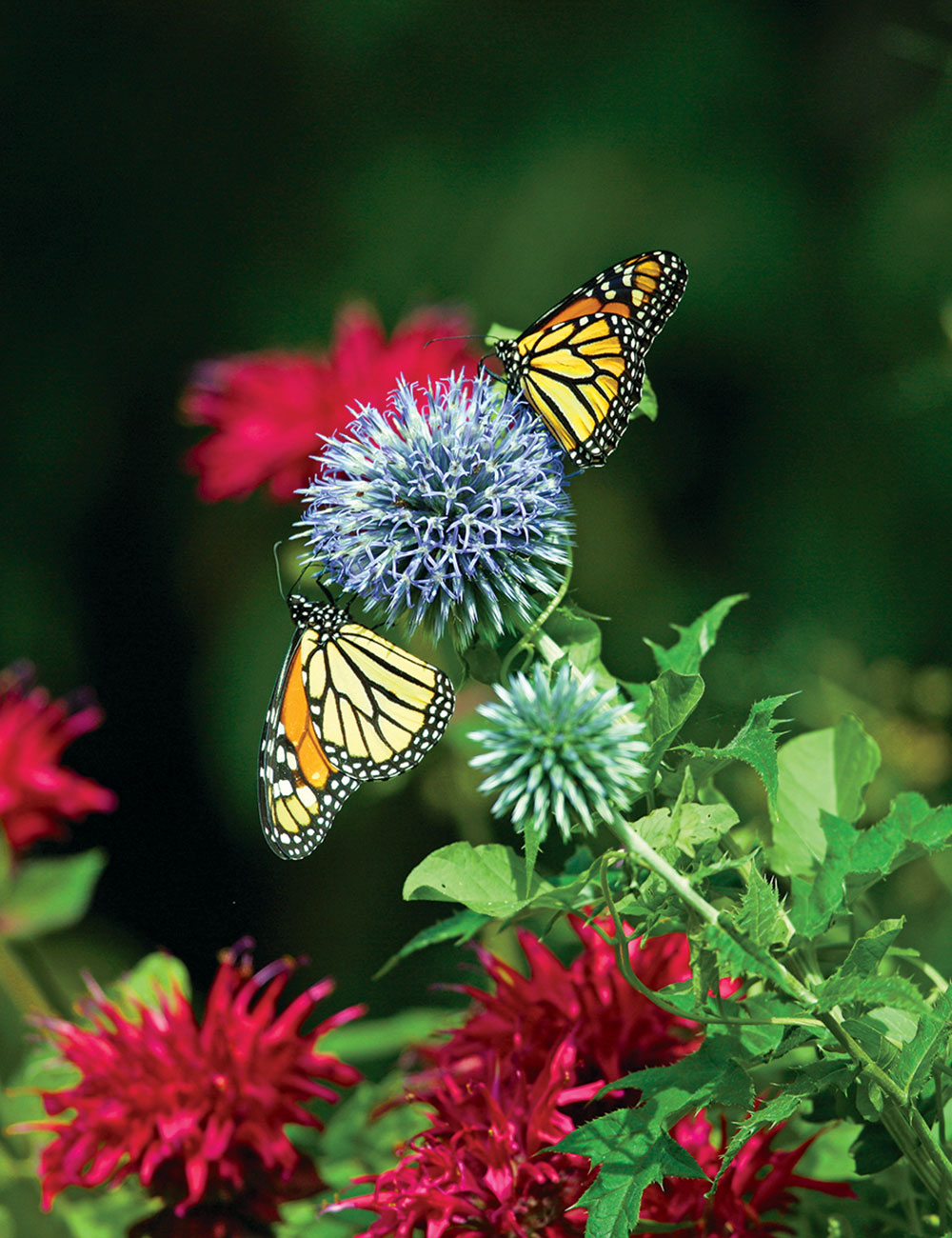
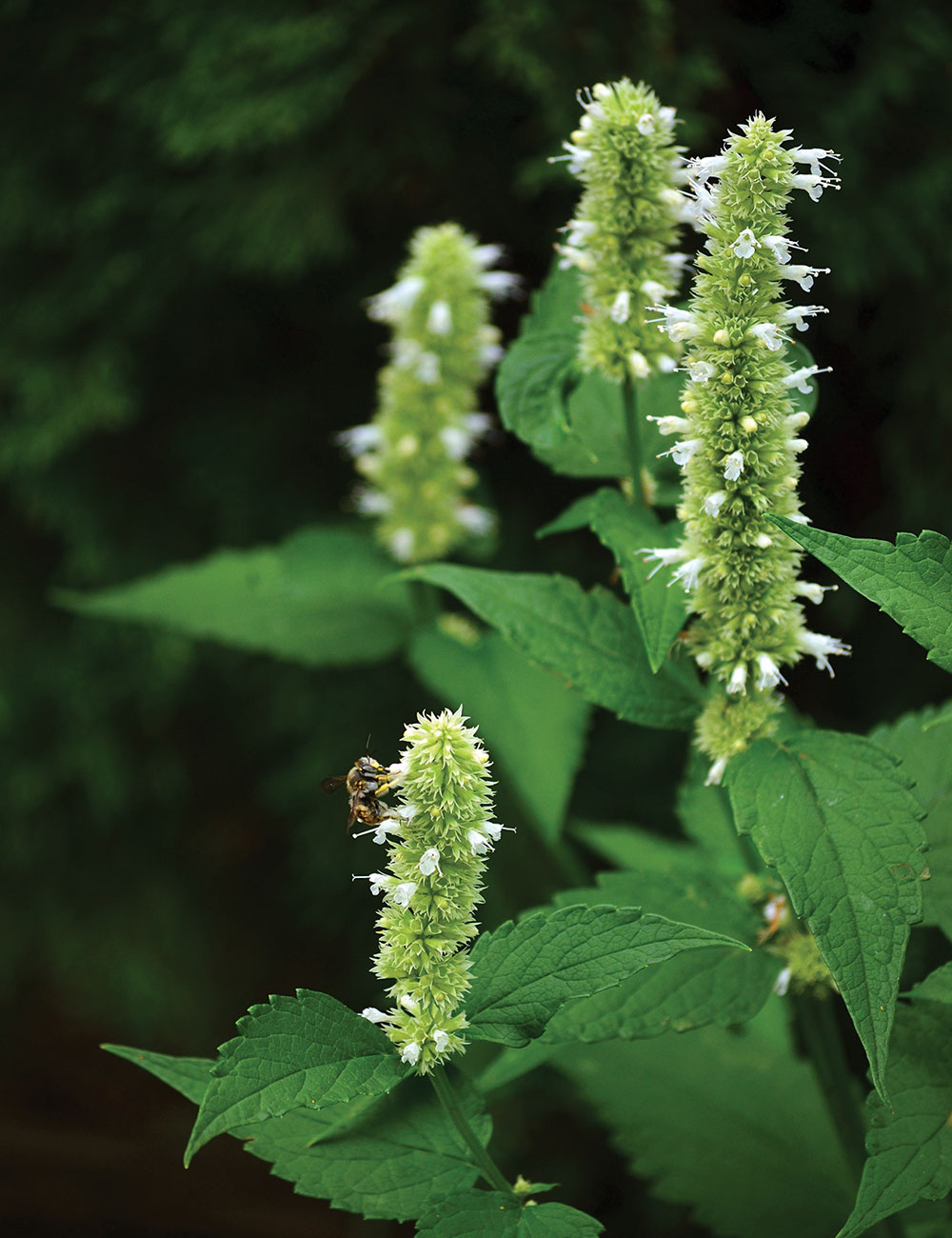
Look to ecologist Douglas Tallamy’s 2019 bestseller Nature’s Best Hope: A New Approach to Conservation that Starts in Your Yard for some sobering inspiration. With so much land modified for human use (95 per cent in his Lower 48), Tallamy argues that the best hope for reversing the degradation of our ecosystems is to plant our properties with at least 70 per cent native species, the ones that evolved here to feed local wildlife, maintain our watersheds, remove carbon from the air, and provide food and habitat for the native pollinators.
In the past, such native species were hard to find at garden centres, which focused on showy, non-native plants mass-cultivated for visual appeal and profitability — plants Tallamy’s research found support 29 times less animal diversity than native ones. Fortunately, an abundance of native plant sources have cropped up in the Georgian Bay area.
One is eARTh Revival, a Collingwood startup which sells locally sourced native seeds and last year helped give away seeds through local libraries.
“There’s a huge opportunity to support pollinators with your garden, added to birds and other insects,” says owner Carrington Lauzon. “Some of the most beneficial natives species are asters, goldenrods and sunflowers.”
Starting seeds is fun, suggests Lauzon, and economical. What’s challenging is many require specific winter-mimicking conditions to germinate. But this “cold stratification” can be as easy as planting seeds in pots and leaving them outside over winter — worth trying if you’re reading this while the snow flies.
Alternatively, plan to purchase young plants directly from a grower like Lacewing Plants in Flesherton, which also offers native plant–focused garden consulting.
“Growers like myself are trying to preserve biodiversity and create resilient ecosystems,” says Lacewing’s owner Pauline Craig. “And you do that through very diverse gardens and genetically diverse seeds. The goal is to get as local as possible and as wild as possible. Seeds growing in this area are adapted to this area.”
Vegetables can play a role too. Collingwood’s new community garden plots at Heritage Park and Sunset Point integrate biodiversity with local food in a place that was previously (in the case of Heritage Park) just a slab of asphalt. Tended by volunteers and including native plants for pollinators, the 20 raised garden beds grew over 2,500 servings of healthy veggies for the community last summer, says Jennifer Parker with the Town of Collingwood. Parker reminds us that a garden’s benefits go beyond food for people and pollinators. “When we get outside we’re more active. And it has an impact on individual mental health as well.”
Though it may still be winter, contemplating all this makes starting on the garden seem urgent. If Tallamy is correct, our survival may depend on it. “Gardening in the traditional sense is optional,” he writes. “But earth stewardship is not.”
Native Plant Resources:
Pollinate Collingwood
pollinatecollingwood.ca
Lacewing Plants
Flesherton;
lacewing.ca
Wildflower Farm
Coldwater;
wildflowerfarm.com
Greentree Gardens & Emporium
Collingwood;
705-444-2146
Return of the Native
Elmvale;
returnofthenative.ca
Not so Hollow Farm
Mulmur;
notsohollowfarm.ca
